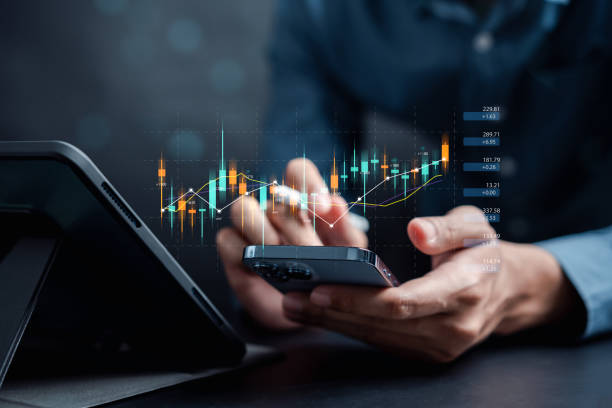How to Trade Forex as a Beginner: Definition, Trading Courses, and Testing
Forex is an international currency market where banks of various countries, funds, private investors, and large companies participate. An analysis of FX has shown that today, it is the most active market with a volume of trillions of dollars. The average deal size on FX is about one million dollars. Today, though, we are talking about another market, which is also called Forex, where owning a real currency is not a prerequisite for participation. There, transactions are concluded for the rise or fall of a particular currency (or crypto). If your forecast turns out to be accurate, you make a profit; if not, you suffer losses.
The organizers of this market are Forex dealers who offer their services online. These companies make a profit at the expense of the participants, so they benefit from an increase in the number of players on their sites. You need to know that the dealer does not allow you to purchase or sell the currency. If you want to do this, you will have to contact a bank or go to a currency exchange where brokers handle the exchange.
Getting Started in Forex
To get started, you need to have a minimum of equipment: a laptop, PC, smartphone, or tablet. You need internet access. You need to download the program from the dealer’s website and install it on your device. After that, the equipment is checked and the platform is configured. It may seem that playing on FX is an easy task, but it’s not because you have to put in a lot of effort. You should assess the risks, follow the trends, study how the price has fluctuated recently, and make an accurate forecast based on this. You can use the information found on the internet, take into account the opinions of other bidders, and listen to the opinions of experts.
Forex Trading Courses
We can say with confidence that Forex trading courses from the AvaAcademy will help you a lot. It is very comfortable. First of all, you can study for free. Secondly, you choose your own schedule and pace of learning. Thirdly, the level of knowledge of the market is not important: you can study as a beginner or as an advanced user. Fourth, you can switch between devices during training: take a test on a smartphone, read articles on a laptop, and watch videos on a PC. Fifth, you will receive a variety of educational content: guides, videos, presentations, graphical hints, and so on. Sixth, in 21 lessons, you will immerse yourself in trading and learn about the many nuances of the profession. Seventh, all information is verified; market professionals will give you tips that will help you in real trading. Eighth, you will be able to cover all asset classes and choose what you like, such as fiat currencies or crypto. Let’s list the advantages of the courses:
you can study for free;
- you choose the schedule and pace of learning;
- you can be a beginner or advanced trader;
- you can switch devices;
- you get a variety of educational content.
Testing Before Starting
If you are a beginner or do not have the status of an advanced trader or investor, you will be asked to take a short test before you start working on the platform. The fact is that the dealer (RFED) wants to make sure that you understand the specifics of trading on FX and can independently assess the risks and possible losses. If the testing is successful, the dealer will offer you a contract, after which you must download special software and install it on your device. Next, you need to make a deposit, that is, transfer the money to the intermediary’s account. You can manage your money and withdraw it if necessary; the money in the dealer’s account is a guarantee that you are able to fulfill your obligations under the deals. All your transactions are displayed in the program. After the trades are closed, the status of your account is updated. If you can guess the change in the exchange rate of a pair (for instance, USD/ CNY), the dealer transfers the winnings to your account; if you do not guess, you lose your bet. Of course, all this is very similar to the game, but it is recommended to take trading on FX extremely seriously, as much depends on the accuracy of your forecasts. Do not completely trust third-party experts; analyze on your own to be more successful.
Commission, Tariffs, and Preparation for Trading
Traders should keep in mind that the dealer (as well as the broker) takes a commission for their services. In other words, you will have to pay for opening an account, using the platform, information summaries, operations on the website, and so on. The trader gives part of their income in the form of a commission to the dealer. These are mandatory conditions for cooperation. Be sure to read in the contract exactly how much money you are required to transfer to the intermediary. If you do not agree with the tariffs, you can challenge them before signing the contract or choose another dealer or broker. Remember that the situation in the foreign exchange market largely depends on political, economic, environmental, humanitarian, and other aspects. It is necessary to monitor what is happening in the world and in individual countries to give an accurate forecast of how the exchange rate of the quoted currency will change over a certain period. We recommend that you take a training course at AvaAcademy before starting Forex trading.




